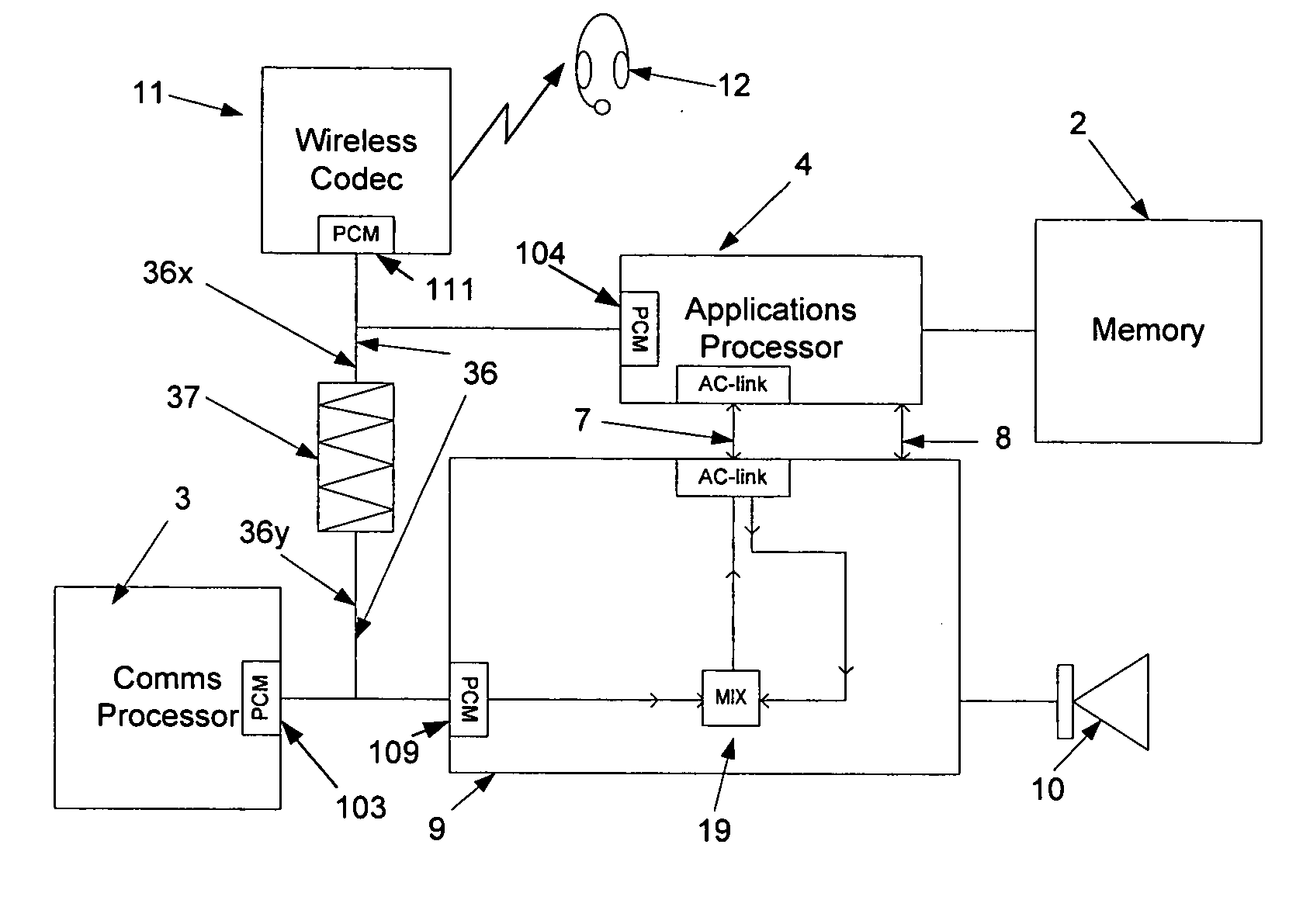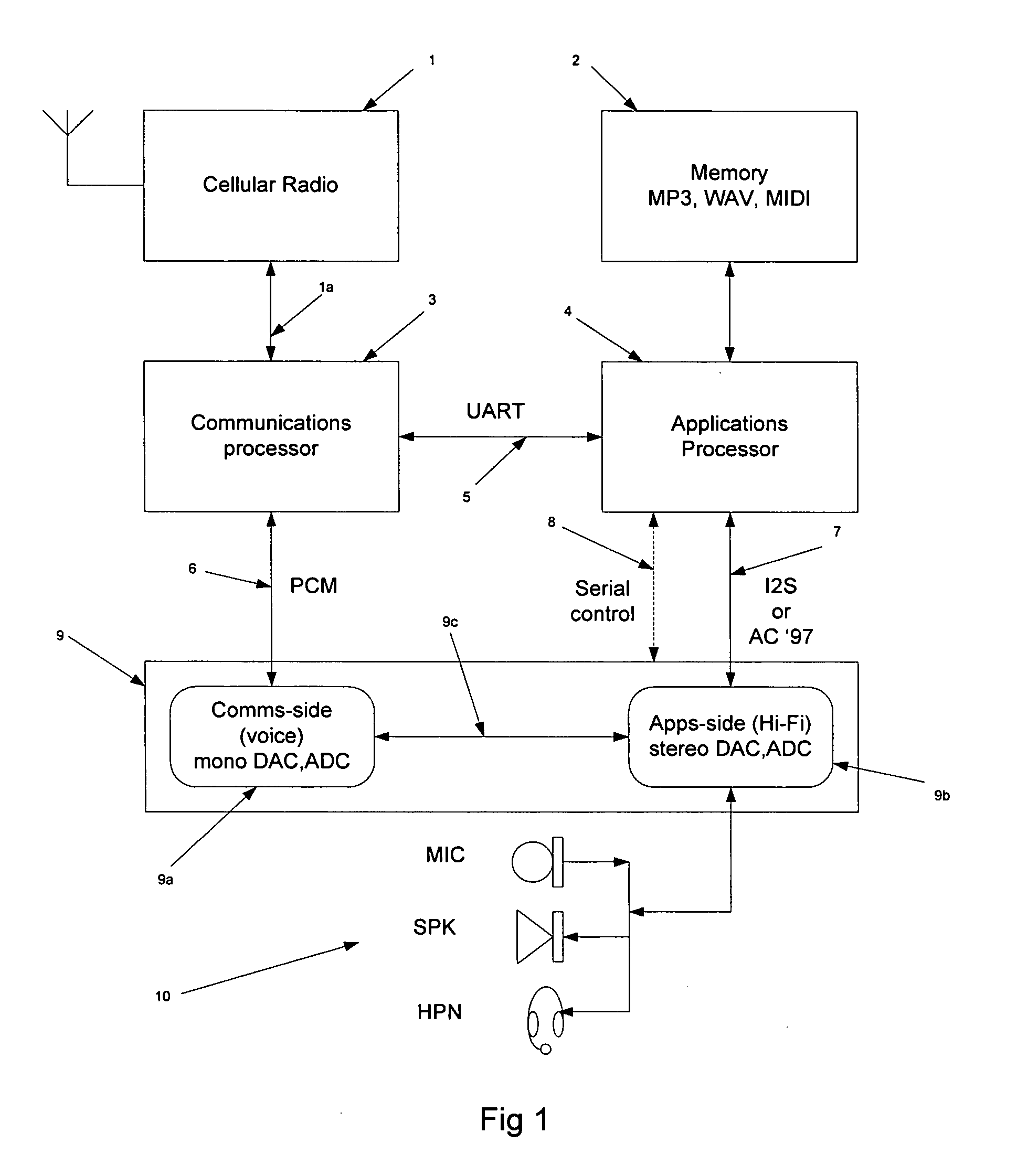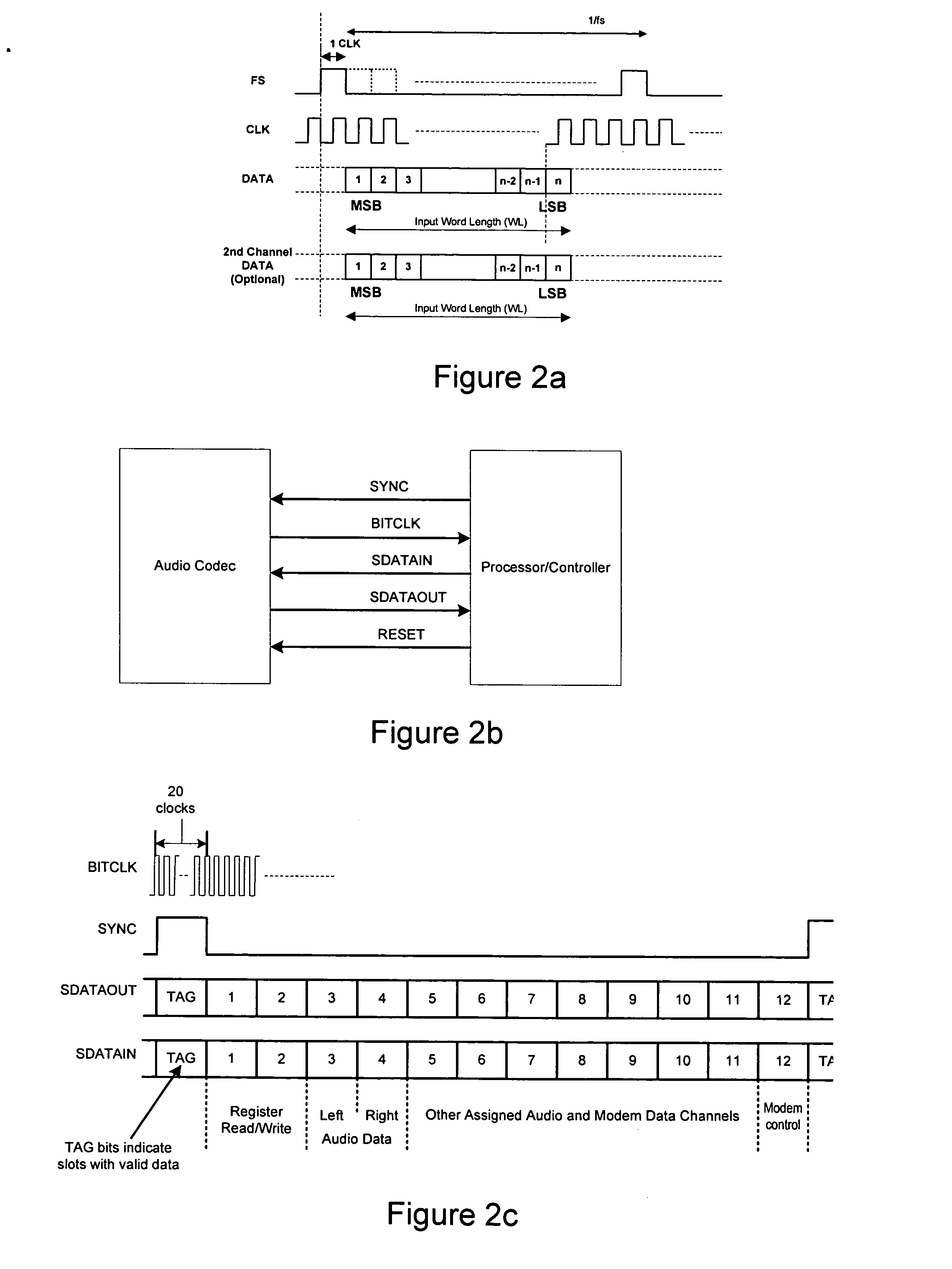Audio device
a technology of audio devices and audio data, applied in the field of digital instruments, methods and signalling, can solve the problems of further limiting system functionality, limiting the range of possible system functionality, and relatively low fidelity of sound or voice audio data
- Summary
- Abstract
- Description
- Claims
- Application Information
AI Technical Summary
Benefits of technology
Problems solved by technology
Method used
Image
Examples
Embodiment Construction
[0081] Referring to FIG. 1, the audio based architecture of an audio convergence device such as a Smartphone is shown and comprises a cellular radio 1 such as a GSM transceiver; a memory 2 for storing audio files such as MP3, MIDI, and WAV (or any program code used to run the platform); a communications processor 3 such as a specialised DSP; an applications processor 4 such as a general purpose CPU; a dual audio codec 9; various audio transducers shown generally as 10 and including a microphone, a speaker, and headphones; buses 5, 6, 7, and 8 between the communications and applications processors 3 and 4 and the codec 9.
[0082] The type or format of the buses (5, 6, 7, 8) or connections between the circuits will depend on their function and the types of data to be transferred as known, and will typically include: a serial connection 5 such as a UART bus between the communications and applications processors 3 and 4; a PCM or pulse coded modulation bus 6 between the communications pr...
PUM
 Login to View More
Login to View More Abstract
Description
Claims
Application Information
 Login to View More
Login to View More - R&D
- Intellectual Property
- Life Sciences
- Materials
- Tech Scout
- Unparalleled Data Quality
- Higher Quality Content
- 60% Fewer Hallucinations
Browse by: Latest US Patents, China's latest patents, Technical Efficacy Thesaurus, Application Domain, Technology Topic, Popular Technical Reports.
© 2025 PatSnap. All rights reserved.Legal|Privacy policy|Modern Slavery Act Transparency Statement|Sitemap|About US| Contact US: help@patsnap.com



